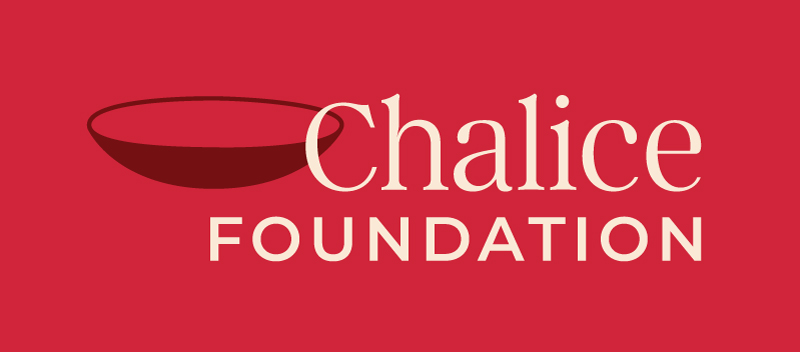This week on The Leak, we feature an excerpt from Ourselves at Work, published by the Victorian Women’s Trust (VWT) and co-authored by Mary Crooks AO, Director of the VWT, and Jane Bennett and Casimira Melican from the Chalice Foundation. Ourselves at Work: Creating positive menstrual culture in your workplace is a comprehensive guide for how to dismantle the menstrual taboo in workplaces, and replace it with a culture that embraces menstrual wellbeing.
In 2019, we published our groundbreaking work About Bloody Time: The Menstrual Revolution We Have to Have, which highlighted the menstrual taboo that oppresses so many women and others who menstruate, affecting their sense of self, their confidence, awareness of their physical bodies and emotional realms, their sexual decision making, and the management of their relationships at home and in workplaces.
Despite the best efforts of individuals (both private and professional), menarche, menstruation and menopause still tend to be difficult and traumatic for many girls and women and carry a great deal of negative association.
Not only do menstruators feel negatively about their menstrual cycle but they feel that others do too. Women and girls described an experience of menarche (first period) and menstruation as often shot through with a kind of collective anxiety.
The findings from our discussions in researching the book suggested that many women operate from a position of ignorance and disconnection from their bodies. Clearly, we have a massive problem with our collective menstrual culture, and how the majority of women experience their menstrual and menopausal lives.
Inevitably this impacts all arenas of life, including paid work. Our workplaces are sites of major anxiety and disconnection for women as they balance the demands of their jobs with their own needs and the needs of their body and themselves, around menstruation and menopause.
It shouldn’t be this way. Menstruation and menopause are not illnesses. It is not about women being sick or having to take sick leave. It is about busting and dismantling the menstrual taboo at work, and developing instead a positive, menstrual culture across our workplaces. In About Bloody Time we made a powerful argument and urgent call for a definition of menstrual health in positive terms, in contrast to the long festering and unexamined assumptions of malaise and vexation.
 The critical need for a positive definition of menstrual health has been most ably answered by the Terminology Action Group of the Global Menstrual Collective who declare: ‘Menstrual health is a state of complete physical, mental and social wellbeing and not merely the absence of disease or infirmity, in relation to the menstrual cycle’.
The critical need for a positive definition of menstrual health has been most ably answered by the Terminology Action Group of the Global Menstrual Collective who declare: ‘Menstrual health is a state of complete physical, mental and social wellbeing and not merely the absence of disease or infirmity, in relation to the menstrual cycle’.
Developing a positive menstrual culture in workplaces is a logical step for promoting consistency, clarity and a safe, constructive working environment for employees and employers alike. As we researched and published About Bloody Time, we felt compelled to put our new learning and experience into our own organisational practice.
We began by developing a menstrual leave policy, making us one of the first organisations in Australia to do so. We published it as a template on our website. We put menstrual products in our bathroom and wondered why we hadn’t been doing this all along. We talked about our research and actions to anyone who would listen. And many did, in huge numbers in fact, from around the country and the world.
As the weeks and months went on, we received inquiries about our work and we actively supported businesses and organisations considering menstrual and menopausal workplace policies. Happily, we have witnessed a substantial uptake of policies such as menstrual leave. It is clear that there is a hunger for improving workplaces, a desire to be rid of the negativity associated with the menstrual taboo and to put in place policies and actions to make life easier, more productive and healthier for many people.
The vision of menstrual wellbeing presented above will require purposeful change, intelligent action, good will, some resources, money, bravery and, most important of all, collaborative effort.
This is why we have now taken the next step to put our experience into a practical guide to assist those seeking to create positive menstrual change in their workplace.
It will be worth the effort. What is certain is that employers who are proactive about the needs of their employees will ensure healthier, happier workplaces, as well as attract and retain valuable employees.
Developing a positive menstrual culture at work is one more piece of the equality jigsaw.
To keep reading you can download and read Ourselves at Work here. Ourselves at Work can also be purchased as a hard copy here.

Jane Bennett
Jane Bennett is the founder of the Chalice Foundation and a social worker, researcher, writer and educator with nearly 40 years in practice. After experiencing the revelations of Natural Fertility Management in the mid-1980s Jane began working as a Natural Fertility Management counsellor, then trainer and later authoring The Natural Fertility Management Kits with Francesca Naish. Jane launched Celebration Day for Girls in 2000, Cool on the Inside in 2002, Fathers Celebrating Daughters in 2004 and Mense-Ed in 2016. Jane co-created The Rite Journey girl’s Year 9 program, and continue’s her long-standing role with Natural Fertility Management. Jane is the author of A Blessing Not a Curse and Girltopia, and co-author of About Bloody Time – The Menstrual Revolution We Have to Have, Woman Wise Conversation Cards, The Complete Guide to Optimum Conception, The Natural Fertility Management Contraception Kit and The Pill – Are You Sure It’s for You?, and is eternally passionate about nourishing healthy curiosity and best-practice self-care for women and girls.

Casimira Melican
Casimira Melican is a Policy and Programs Officer at the Office for Women (Victorian Government) and has been co-editing The Leak with Jane Bennett since April 2020. Casimira has a Masters in International Relations from the University of Melbourne with a focus on policy, human rights and international governance. In 2016, Casimira co-wrote the VWT’s menstrual and menopause workplace wellbeing policy, co-authored Ourselves at Work: Creating positive menstrual culture in your workplace and led advocacy on the policy until June 2021 in her role as Manager of About Bloody Time and Research and Policy Officer at VWT. Casimira is passionate about the ability for policy and research to have real world impact and empower women, trans, non-binary and gender diverse individuals within our society.

Mary Crooks AO
After an extensive public policy career, Mary became the Executive Director of the Victorian
Women’s Trust at the end of 1996. In June 2012, Mary was appointed an Officer of the Order of Australia, for her distinguished services to public policy and advocacy for the advancement of women. In 2016, Mary won the Public Policy
category as part of the AFR/Westpac’s 100 Women of Influence for her years of work in shaping
public policy in Australia.


